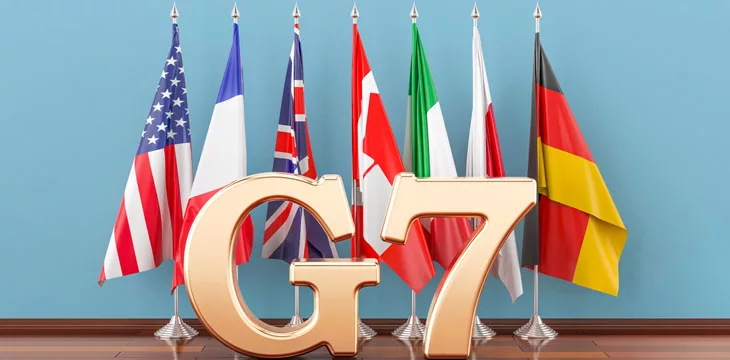Italy has designated artificial intelligence (AI) regulation as a key focus during its term as leader of the Group of Seven (G7), indicating support for establishing stricter developer rules.
Italian Prime Minister Giorgia Meloni confirmed the country’s plans for AI, which aim to bring regulations in line with the pace of innovation across the industry. Italy is expected to lead the G7 over the next 12 months, promoting coordinated regulatory efforts among member states rather than a staccato approach.
G7 countries include the United States, Canada, France, Italy, United Kingdom, Germany, and Japan, and are hosting leading AI developers. Although major AI companies such as OpenAI and Google (NASDAQ: GOOGL) are based in G7 countries, the exact blueprint for increased regulation in Italy remains unclear.
But industry experts are bracing themselves to put employee job security at the top of the pyramid and focus on creating rules that could impact the use of AI in workplaces across the European Union. ing.
“We are very concerned about the impact of AI on the labor market,” Meloni said. “Today we face a revolution in which human intelligence is in danger of being replaced.”
Italy’s first salvo will be to convene an AI-focused session for stakeholders ahead of a summit in Q2 2024. The session will include representatives from major AI companies, and experts say the resolutions reached could form the basis of rules to be resolved by developing countries.
Italy is subject to the next EU AI law, but there are concerns that the new G7 leader will take a tougher stance on AI during his term. The country has endured a rocky relationship with AI in the past, including geo-restricting ChatGPT for violating national and local data privacy rules.
After intense horse-trading, Italy lifted its ban on ChatGPT, but stepped up investments to protect consumers from illegal data scraping by AI developers. The investigation into OpenAI’s handling of customer data is still ongoing in what Italian authorities are calling a “fact-finding” mission.
Apart from AI, Italy plans to make the war in Ukraine and African development a top priority during its G7 presidency.
A global approach to regulation
Rather than developing AI regulations in silos, countries are leaning toward a collaborative approach to establishing regulatory standards for emerging technologies. The EU is leading the way in trying to create a regulatory rulebook for the region, with the UK reaching a historic milestone with 28 countries signing the Bletchley Declaration.
“We provide contextual transparency and accountability to all stakeholders regarding our plans to measure, monitor and mitigate potentially harmful capabilities and their associated impacts. “We encourage you to do so,” the document says.
The United Nations (UN) has previously indicated that the threat of AI will only emerge in mid-2023, and in a pre-emptive move, it launched a new advisory body to permanently harness the technology.
For artificial intelligence (AI) to function properly within the law and succeed in the face of growing challenges, it must integrate enterprise blockchain systems that ensure the quality and ownership of data input. This allows you to keep your data safe while also guaranteeing immutability. of data. Check out CoinGeek’s coverage Learn more about this new technology Why enterprise blockchain is the backbone of AI.
Watch: Blockchain, AI and Web3 at B2029 Meetup in Berlin
New to blockchain? Check out CoinGeek’s Blockchain for Beginners section. This is the ultimate resource guide to learn more about blockchain technology.

